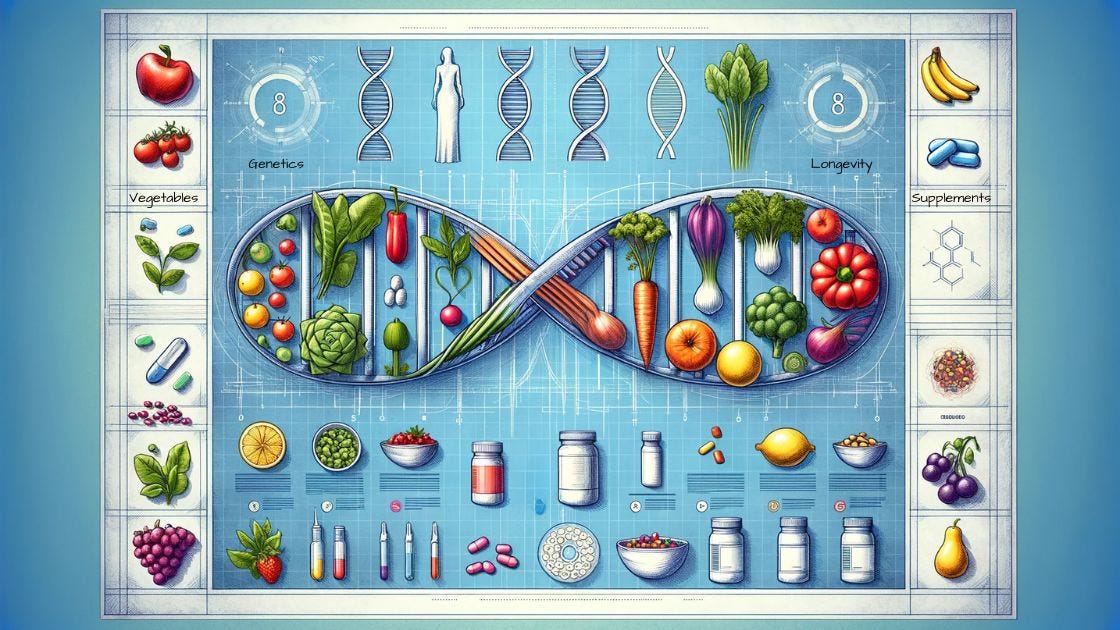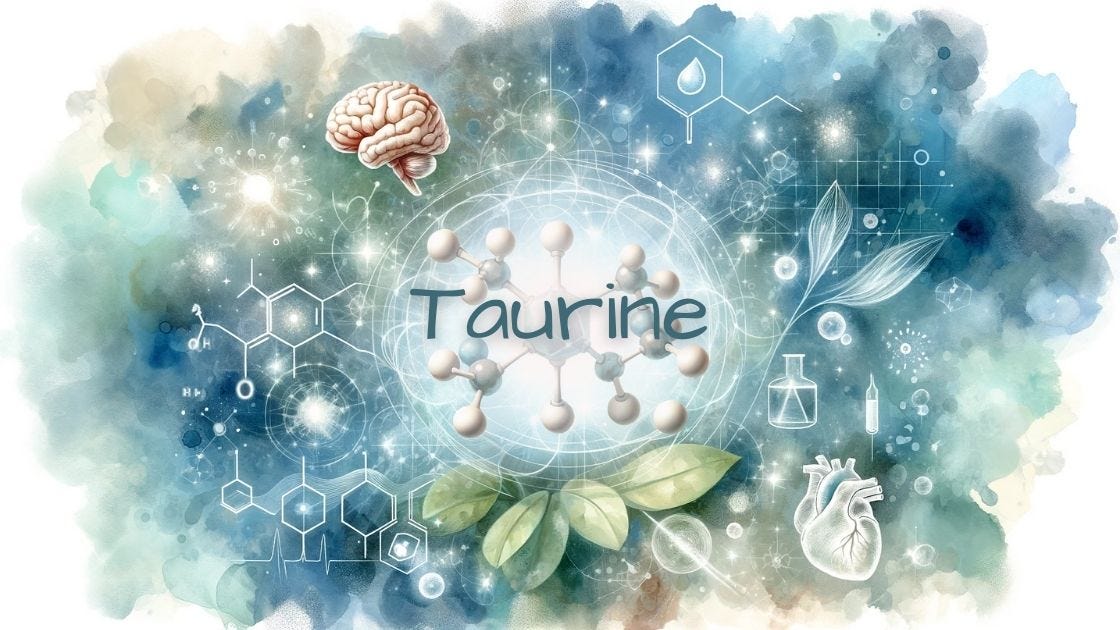Taurine and Longevity Supplements
Hey everyone,
I'm fascinated by longevity research, and more importantly, ways to improve healthspan. I'm at the age where it's clear that preventing the diseases of aging is essential.
A tech entrepreneur, Bryan Johnson, has been in the news recently with articles about how he's spent $4 million to reverse biological aging.
I don't have millions to spend on anti-aging... but I was curious about what Bryan Johnson was doing. He has a website that explains his "Blueprint Protocol" for staying young, including his diet and list of supplements.
In the article below, I look at how the supplements in Bryan's Blueprint Protocol relate to my articles on genetics and supplement research. It turns out that I have articles that cover just about everything that he's taking. Personally, I use genetics and research studies to fine-tune what I take so I don't break the bank on supplements I don't need.
One supplement in Bryan Johnson's anti-aging protocol is taurine, which happens to be the topic of my second new article below.
The taurine article is one that I started working on a few months ago, after reading about a new study showing that taurine could increase lifespan and healthspan in animals. Taurine is a semi-essential amino acid used by cells for several important functions.
Taurine levels decline as we age, and the newly published animal studies showed that supplementing with enough taurine to reverse the decline, starting in middle age, increased healthspan and lifespan by 10%. In addition to prolonging healthy agin, taurine has some interesting studies for mitochondrial function, brain health, calcium regulation, and blood pressure.
Finally, I wanted to give everyone a heads up that I'm going to be upgrading some back-end stuff on the site this week to hopefully make it faster and easier to navigate (a never-ending quest!). There may be some brief downtime as I reboot the server, so please check back a few minutes later if the site is temporarily down.
Wishing you well,
~ Debbie
Bryan Johnson’s Blueprint Protocol with Genetic Links
Bryan Johnson, a 46-year-old tech entrepreneur, is spending a lot of money on reversing aging. And... it seems to be working pretty well for him as far as his health tests show.
He has posted his diet and supplement plans, called the Blueprint Protocol, on his website - bryanjohnson.com. I'll let you read more about him there.
Bryan has a fitness routine, diet plan, sleep schedule, and supplements that he takes every day. You can check out his regular diet which is high in vegetables, berries, lentils, and olive oil. He includes a breakdown of nutrients and calories.
I wanted to dig into his supplement routine --for myself, of course, and for all of my Genetic Lifehacks readers. I was immediately struck by the number of supplements on his list that I have written about (and take personally).
Taurine: Research on healthspan and supplements
Key takeaways:
~ Increasing taurine levels may be beneficial for healthspan and healthy longevity.
~ Taurine helps mitochondrial energy production, acts as an antioxidant, balances calcium in cells, interacts with bile acids, and is neuroprotective.
~ Your cells can synthesize some taurine, but you also need to get taurine from food. Supplemental taurine may be helpful in aging for some people.
What I've been reading:
1) Is modern food lower in nutrients?
This Chemistry World article attempts to answer that question. I had read that modern agriculture methods had led to lower nutrient content in foods. It made sense, but I was never sure how good the testing was on nutrient levels in foods fifty or a hundred years ago. The article explains several different studies on nutrient levels and on testing soil samples that were kept from the 1880s until now. Yes, soil nutrient levels are declining a little bit, but it seems that the newer variants of staple crops, like modern wheat varieties, are the bigger problem in terms of lower nutritional value.
2) 23andMe Credentials Stuffing Breech
Tech Crunch article explaining that 14,000 customer accounts were accessed using the passwords from lists that were hacked from other sites. While this was only 0.1% of 23andMe users, the ancestry profiles of everyone who opted into 'DNA Relatives' sharing could also be seen. 23andMe has now notified everyone who was affected by the breach, forced all users to change their password, and set up two-factor authentication. AncestryDNA and MyHeritage also are now requiring two-factor authentication. Again, this is why everyone should use a unique password for every website.
This mouse study showed that fluoride exposure during development disturbed choline and arachidonic acid metabolism -- for two generations. The researchers were using doses to simulate exposure from fluoridated drinking water as well as higher levels similar to areas with fluoride in the water from agricultural runoff or naturally high fluoride levels in the soil.






